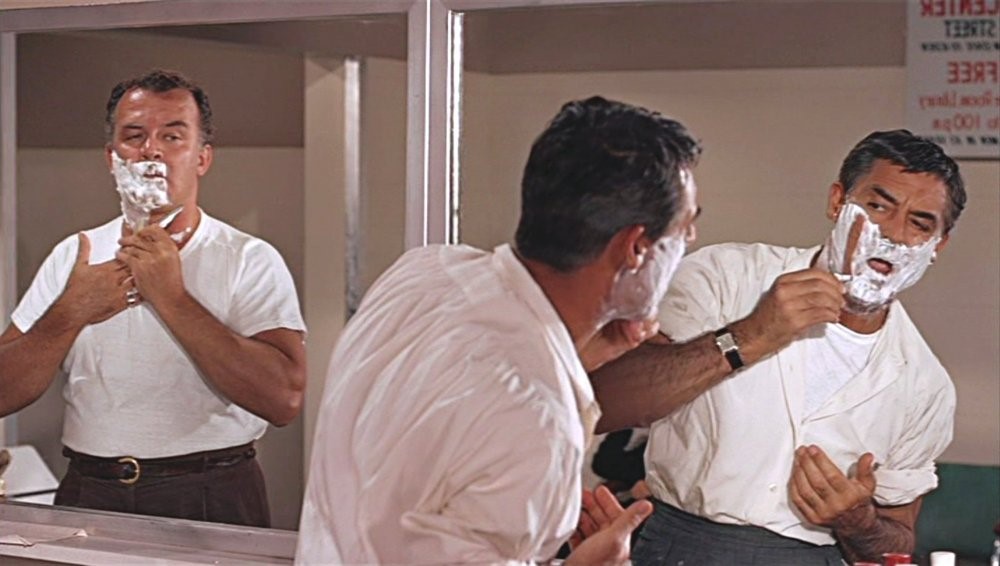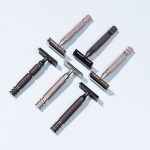Shaving scenes in cinema have borne a special, dramatic weight since the very beginnings of the Silver Screen. Who would have guessed that the quotidian affair of simple grooming would find itself spread so broadly across cinema? Brisk coming-of-age scenes, solitary moments of despair, and even characters embroiled in heated moments of crime. The razor itself can act as a Chekhov’s Gun, hinting at mistrust between lovers, or as a symbol of consummated love. It’s often in those moments of the mundane that we find the most meaning, as we relate to the drama playing out before us. But what are those films where razors play such a pivotal role? We take a look at some classic shaving scenes in cinema, for a bit of insight into just what shaving can mean.
North by Northwest

In this action-packed Hitchcock classic, we see a wanted Roger Thornhill (played by Cary Grant) seeking to disguise himself from the authorities by masking his face in shaving cream and using his sweetheart’s miniature razor as an ersatz men’s razor. The authorities barge into the bathroom, where Roger casually shaves beside another concerned-looking man using a straight razor. In all their madness, the authorities fail to identify Roger. Upon his return to the sleeper carrel, his paramour asks him why he took so long, to which he shrewdly replies, “big face, small razor,” effectively concealing himself from her and the officials.
Skyfall

Another action film, this time in the midst of a slow, romantic scene. James Bond (played by Daniel Craig) is in his hotel suite, applying lather to his face, when room service calls him to the door. It turns out to be one of his romantic interests. They engage in coy banter, and he hands his straight razor to her, allowing her to shave his face and neck. They share an intimate moment, the background pervaded by an ominous black, foreshadowing the coming of foreboding events.

A frenzied man, Richie (played by Luke Wilson), stands in front of a mirror, and draws out beard trimmers and a razor. He trims his hair and beard, and becomes rapidly obsessed with removing all hair from his face, until finally we see a series of traumatic events flash before his eyes, at the speed of a metronome’s click, goading him to near-fatal self-inflict.
In all these cinematic scenes, the razor embodies a dual principle that wavers between thrill and danger. Emotional whim overpowers characters in crises, forcing them to relinquish control and submit to their destructive impulses. The razor—used for sanitary purposes and visual presentation—is a symbol of order and control, yet also a force of destruction, prompting human acts of violence and deception.
Shaving scenes have been featured in many a drama: what dramatic role do you think the razor plays?





